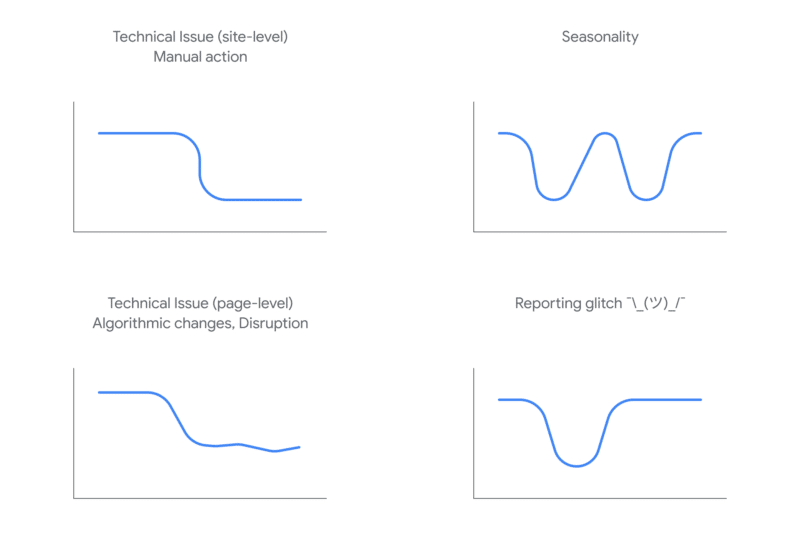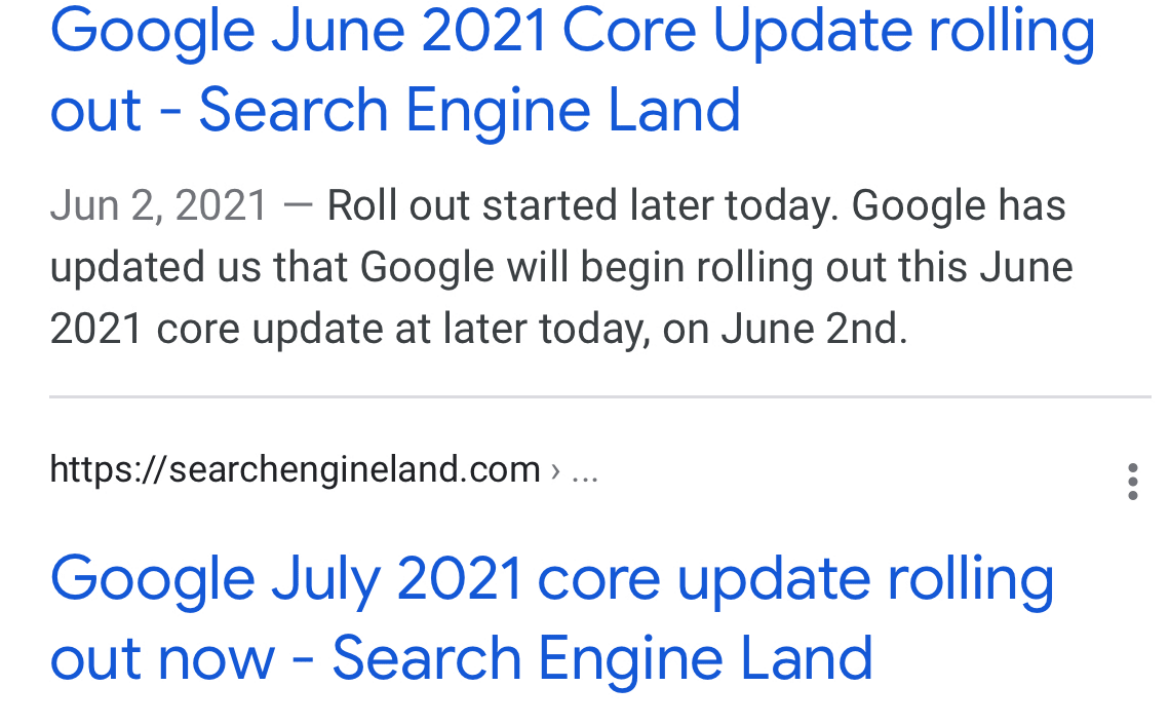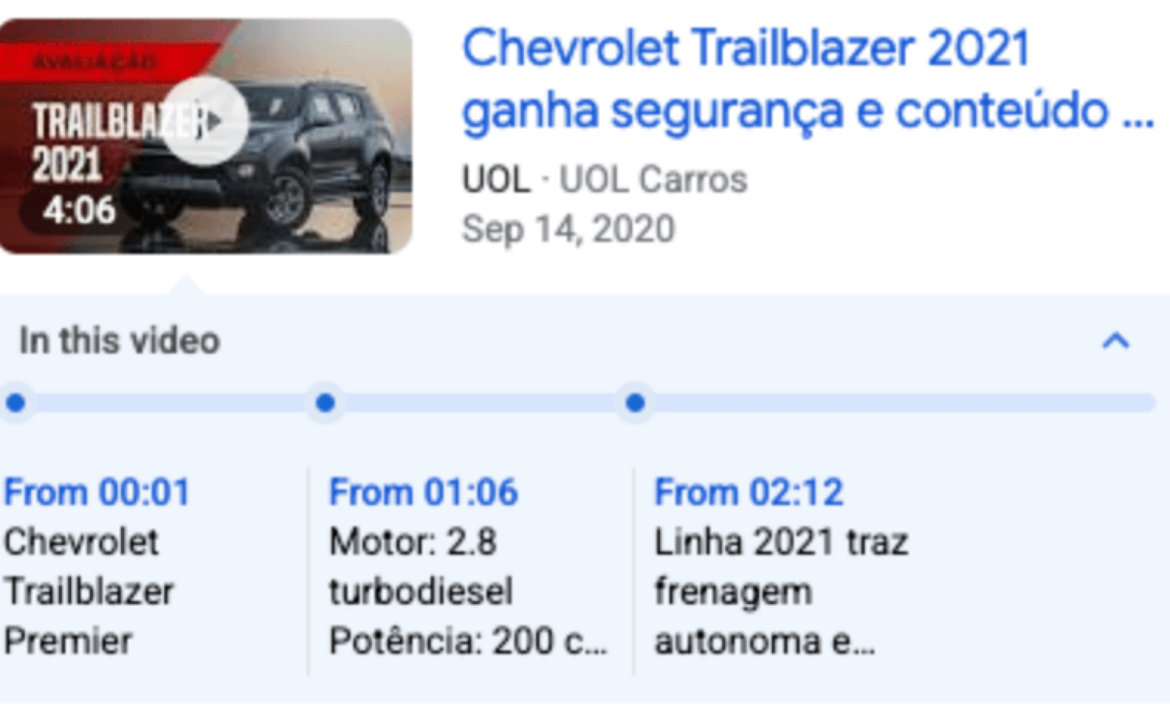Change is what search marketers expect; Wednesday’s daily brief
Search Engine Land’s daily brief features daily insights, news, tips, and essential bits of wisdom for today’s search marketer. If you would like to read this before the rest of the internet does, sign up here to get it delivered to your inbox daily.
Good morning, Marketers, do you love or hate change?
If one thing is constant in the search marketing industry, it is change — and a lot of it, very often. Just in this newsletter, we are reporting about new changes Google made to its mobile results and Google Ads’ new policy violation rule that will go into effect in the coming months.
The search results, both paid and organic, are constantly changing. Sometimes it is the algorithms that cause them to change. Sometimes it is the competition causing the change. Sometimes it is something you do that causes them to change. But if there is one guarantee in our space – it is change.
We’ve seen the strategies, especially the quick win strategies, change drastically over the years. We’ve seen the link-building industry turned upside down numerous times. We’ve seen the content marketing space adapt countless times. We’ve seen AI, automation, and machine learning touch all aspects of what we deal with.
Embrace change and it’ll make your job easier.
Barry Schwartz,
Change management consultant
Google Ads to try three-strikes and you’re out policy
Starting in September 2021, Google Ads will begin testing a new three-strikes pilot program for accounts that repeatedly violate ad policies. Well, it might be four-strikes; it starts with a warning but then an additional three-strikes after that warning – your Google Ads account can be suspended.
Strikes expire after 90 days, according to Google. If you’ve had two strikes, fix the issues, send an acknowledgment of the issues and fixes, and then do not violate another policy for 90 days after the fix, your account resets, in a way, and the next violation will be the initial warning again. As always, search marketers will be able to appeal any violation and enforcement decisions.
Google may expand this three-strikes rule beyond just the Enabling Dishonest Behavior, Unapproved Substances and Dangerous Products or Services policies areas in the future.
Why we care. The new ad policy pilot program provides clear actions and consequences for advertisers. While Google is testing this program for the Enabling Dishonest Behavior, Unapproved Substances and Dangerous Products or Services policies, it will likely eventually roll out to other policy areas in the coming year. The initial warning gives you the benefit of the doubt, but penalties are increasingly stringent after that. Many advertisers are worried that the new policy will penalize those whose ads get mislabeled or mistakenly violate policies.
AMP labels gone for Google mobile search results
After five years of Google showing the AMP icon in the mobile search results, it is now retired. Google is no longer showing the AMP label even for AMP pages in the mobile search results.
Google was thinking of showing a page experience label instead, but we have yet to see Google show the page experience label that they tested for a short period of time last December. Instead, Google shows no label for either AMP-enabled pages or for pages that meet the page experience update factors – at least not yet.
Why we care. It is unclear what impact this change may or may not have on your click-through rate to your AMP content from Google Search. Keep an eye out for those changes in your analytics and reporting tools.
Google illustrated what different types of traffic declines look like

Daniel Waisberg of Google came up with illustrations of what six different categories of organic search traffic drops look like when you are looking at your performance report in Google Search Console. It is broken down into these categories:
- Site-level technical issue
- Page-level technical issue
- Manual action
- Algorithmic changes
- Seasonality
- Reporting glitches
So if you see these types of traffic drops, you may want to dig in and figure out what is the cause.
Why we care. I believe this was the first time Google described visually how various issues in Google Search can impact your traffic. It gives you a way to clearly see what to expect from various SEO issues and how your traffic may be impacted. It is important to note that these illustrations are generalizations and that you do need an experienced SEO consultant to diagnose any real issues with your website.
Math solver rich results filter in Search Console performance report
A new search appearance filter has been added to the Google Search Console performance report. This new filter works for math solver rich results and structured data. That is, if your site shows math solver rich results in Google Search, Google can now report on your clicks, impressions and other data within the search performance report in Search Console.
The Google Search Console performance report shows important metrics about how your site performs in Google Search results: how often it comes up; average position in search results; click-through rate; and any special features (such as rich results) associated with your results.
Why we care. This gives us more data to see if using Math Solvers markup is actually helping our sites get more visibility in search. More importantly, is the markup and rich results leading to more clicks to our websites.
Faster AdSense code, shared hosting, Google Posts for hotels and deleting disavows
Deleting disavow files. John Mueller of Google warns against blindly deleting disavow files. He said “blindly deleting the file sounds as bad as blindly adding to the file :). Be thoughtful when making bigger changes.”
Google Posts for hotel listings. It seems Google might be testing bringing Google Posts to hotel listings in Google Search. It is unclear if this is a bug or an early beta feature, but those SEOs in the hospitality industry are excited to give it a try.
Shared hosting and SEO. Google’s John Mueller said in a video that shared hosting works fine for SEO and ranking in Google Search. He shared more details in this video, like if the shared host gets overloaded and GoogleBot may have issues crawling the site.
Google AdSense better code. Google announced it has new faster and better performing AdSense code. If you want better-performing pages and for your AdSense code to not slow down your pages as much, you can replace your old AdSense code with the new one. Google is not doing away with the old code, so you do not need to replace the code if you don’t want to.
We’ve curated our picks from across the web so you can retire your feed reader.
- How to Create Your Local Business USP with QUAAAC UGC – Moz
- Google Says Core Updates Can Impact People Also Ask Results – Search Engine Roundtable
- How to Succeed With Google Posts: What We Learned From Analyzing Over 1,000 Google Posts – Sterling Sky
- Ready for it? Olympics 2021 best practices for news SEO – WTF is SEO?
- Rewriting Keywords at Google for Paid Search – Go Fish Digital
The post Change is what search marketers expect; Wednesday’s daily brief appeared first on Search Engine Land.



